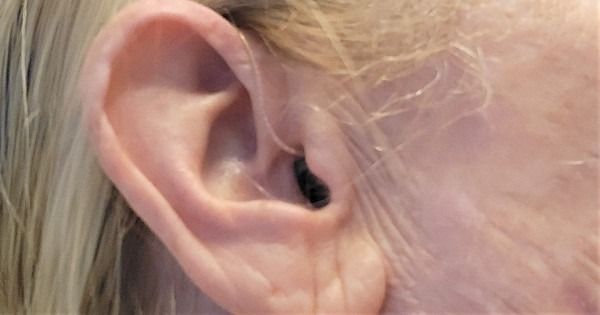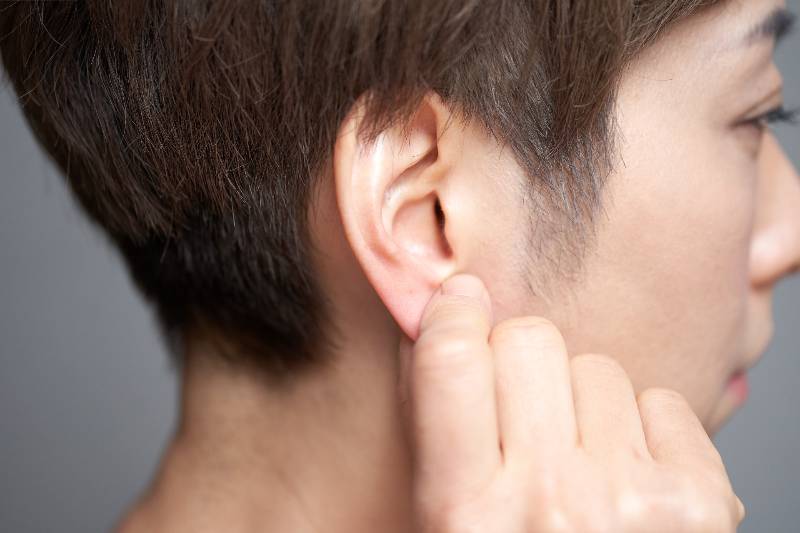Introduction
Mixed Hearing Loss (MHL) is a unique and complex condition that affects a significant portion of the population. This condition, which combines elements of both sensorineural and conductive hearing loss, presents a variety of challenges to those who experience it. In this comprehensive guide, we delve into the intricacies of MHL, exploring its causes, symptoms, and the latest treatment options. We also examine the cultural impact of MHL and how it is perceived and managed in different communities across the USA. Our aim is to provide a thorough understanding of MHL, offering valuable information for patients, healthcare providers, and anyone interested in this multifaceted condition.
OTC Hearing Aid Pair
Experience the world like never before with the RCA OTC Behind-the-Ear Hearing Aid. Our advanced digital technology ensures that every sound is crystal clear and vibrant, allowing you to fully immerse yourself in life’s experiences. Whether it’s the laughter of loved ones or the music that moves you, our hearing aid brings back the joy of every moment.
Say goodbye to the hassle of appointments and prescriptions. The RCA OTC Hearing Aid is designed to meet the needs of individuals without the need for a prescription. With its seamless setup and user-friendly design, you can effortlessly enhance your hearing abilities and stay connected to the world around you. Simply unpack, wear, and enjoy improved auditory perception instantly.
Experience optimal comfort and style with our discreet behind-the-ear design. The thin tube design allows you to wear glasses comfortably, so you can enjoy clear hearing while maintaining your personal sense of style. Plus, our rechargeable battery ensures long-lasting power, eliminating the inconvenience of constantly replacing small batteries. Elevate your hearing experience with the RCA OTC Hearing Aid and embrace the world with confidence.
Understanding Mixed Hearing Loss
MHL is a condition that combines the characteristics of both sensorineural and conductive hearing loss. This dual nature makes it a particularly challenging type of hearing impairment to diagnose and treat. The sensorineural component is usually caused by damage to the hair cells in the cochlea or the auditory nerve, while the conductive component is typically due to problems in the outer or middle ear, such as ear infections, fluid buildup, or bone abnormalities.
Symptoms of MHL can vary widely but often include a reduced ability to hear faint sounds, difficulty understanding speech, especially in noisy environments, and a feeling of fullness or pressure in the ears. Diagnosing MHL requires a comprehensive audiological evaluation, including tests like pure-tone audiometry, tympanometry, and speech recognition tests.
Treatment for MHL is multifaceted and depends on the severity and cause of the hearing loss. Options may include hearing aids, which are often the first line of treatment, surgical interventions to correct conductive problems, or cochlear implants in more severe cases. It’s important for individuals with MHL to work closely with an audiologist or ENT specialist to determine the best course of action.
The Cultural Impact of MHL in the USA
The cultural impact of MHL in the USA is significant and multifaceted. Hearing loss, in general, is often stigmatized, and this can be particularly true for MHL due to its complex nature. This stigma can lead to challenges in social interactions, employment, and education for those with MHL.
In recent years, there has been a growing movement to increase awareness and understanding of hearing loss, including MHL. Advocacy groups and individuals with hearing loss have been working to break down stereotypes and promote a more inclusive society. This includes efforts to improve access to resources, support services, and accommodations, particularly in the workplace and educational settings.
Cultural perceptions of hearing loss are also evolving, with a greater emphasis on empowerment and accessibility. There is an increasing recognition of the importance of communication access, such as captioning services and sign language interpreters, in public spaces and media. Additionally, advances in hearing aid technology and cochlear implants have helped to reduce some of the barriers faced by individuals with MHL.
FAQ Section:
- What is Mixed Hearing Loss? MHL is a type of hearing loss that combines elements of both sensorineural and conductive hearing loss, presenting unique challenges in diagnosis and management.
- How is MHL Diagnosed? MHL is diagnosed through comprehensive audiological tests that assess both the conductive and sensorineural components of hearing loss.
- What are the Treatment Options for MHL? Treatment options for MHL include hearing aids, surgical interventions, cochlear implants, and personalized therapy plans based on the individual’s specific needs.
Practical Tips for Managing MHL:
- Regularly consult with an audiologist or ENT specialist.
- Explore different types of hearing aids and assistive listening devices.
- Stay informed about new treatments and technological advancements.
- Join support groups or forums to connect with others who have MHL.




